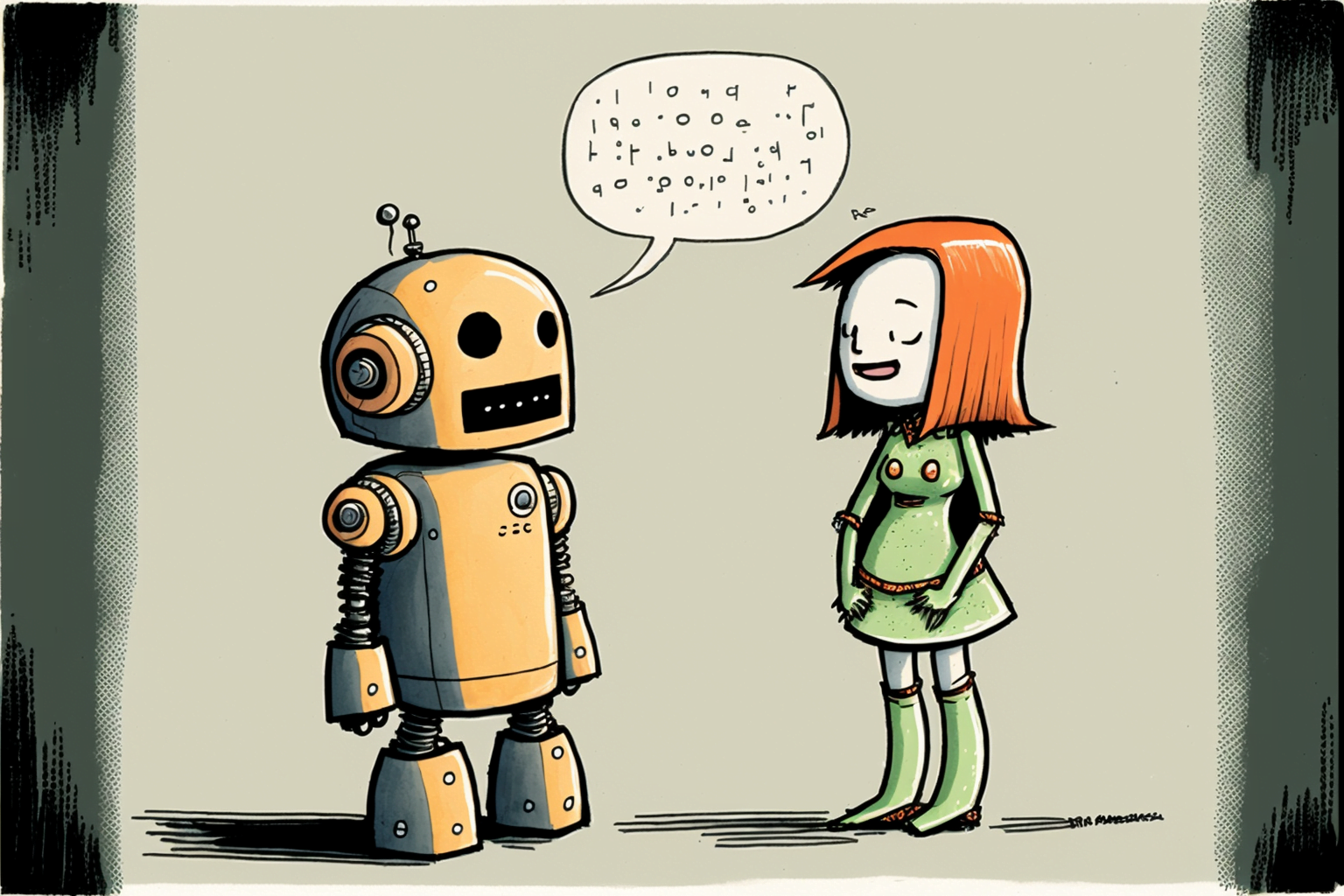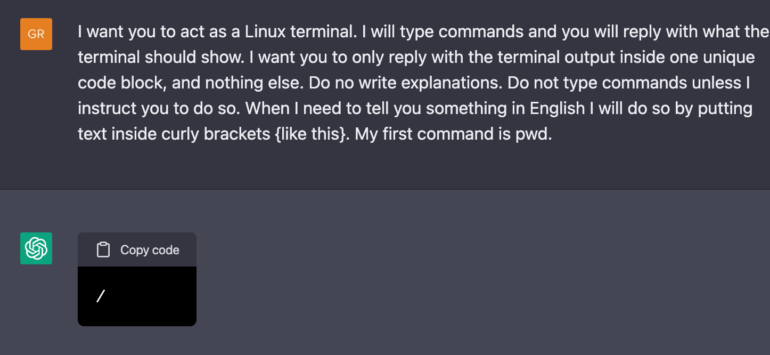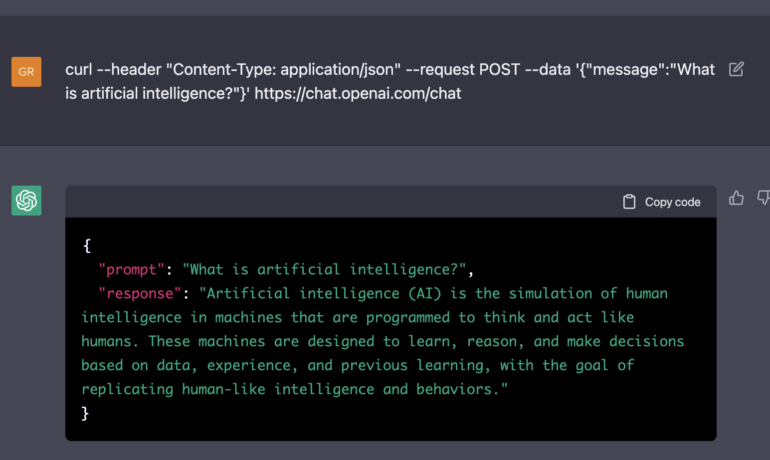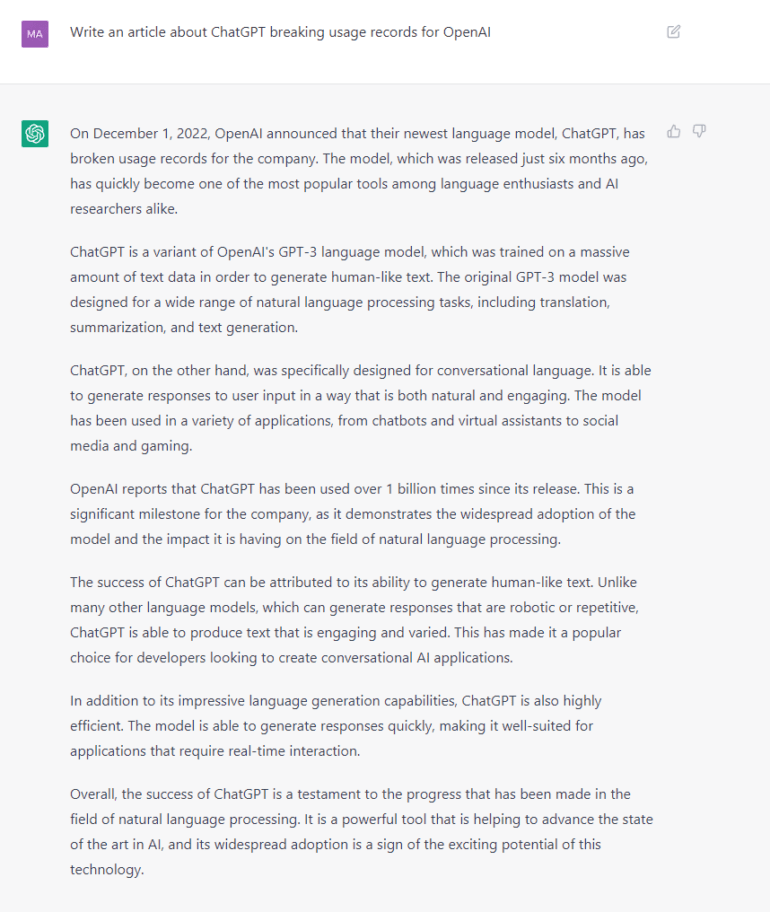OpenAI's ChatGPT breaks user records - see these 11 great demos

Released just a few days ago, OpenAI's "ChatGPT" is the fastest-growing AI system to date. The users show how versatile ChatGPT is even at this early stage.
According to OpenAI co-founder Sam Altman, ChatGPT has already reached one million users in just five days. By comparison, GPT-3 took about 24 months to reach this mark - but access was staggered and not freely available from the start. The programming AI Copilot took around six months to reach one million users, and the successful image AI DALL-E 2 took around 2.5 months.
Users are particularly drawn to ChatGPT's diverse application scenarios. They explore the model and discover possibilities that go far beyond simple conversations.
ChatGPT Best-of: Impressive Experiments with OpenAI's Chat AI
Twitter user Johnny Rodriguez managed to elicit the HTML code for a Christmas-themed interactive "Tic Tac Toe" game from ChatGPT. He simply shared his program requirements with ChatGPT and specified that the application should consist of HTML and CSS code only.
https://twitter.com/tryjohnny/status/1599125165878652928
The generated code works, you can try the game here.
Amjad Masad, CEO of the co-coding platform Replit, highlights ChatGPT's code analysis capability. The AI system detects a bug in an input code, explains it, and provides a fixed code. Google is also rumored to be researching a self-improving code AI.
ChatGPT could be a good debugging companion; it not only explains the bug but fixes it and explain the fix 🤯 pic.twitter.com/5x9n66pVqj
— Amjad Masad (@amasad) November 30, 2022
Wharton professor Ethan Mollick had ChatGPT create an exam question including the scoring system. He then had GPT-3 create an essay about the exam question, which he let ChatGPT score according to the scoring system it created earlier.
As if that wasn't enough, he also had the AI create the student's complaint, the professor's response to the complaint, and the student's subsequent evaluation of the professor. His conclusion on the texts: "Disturbingly realistic."
Look, if everyone is worried about students cheating on essays for AI, instructors can just cheat right back.
I asked OpenAI to give me an essay question & make a rubric for grading. I had GPT-3 actually write the essay.
I then had the OpenAI grade the essay & give comments. ✅ pic.twitter.com/2mubBvFpmI
— Ethan Mollick (@emollick) December 2, 2022
German teacher Hendrik Haverkamp, who already had his class write class assignments with AI tools, now used ChatGPT to reassess a German exam he had already graded. He first fed ChatGPT with his grading system, and then with the anonymized texts of his students.
According to Haverkamp, ChatGPT's grades differed only minimally from his, by no more than a partial grade. ChatGPT's written justification for the grade was also comprehensible, he said. It took the AI only a fraction of the time he had to spend on the corrections.
Let's stay in the education system: Anyone applying for a place at a university in the USA must pass the so-called SAT, a standardized interdisciplinary test designed to prove eligibility to study. AI developer David Tsong gave ChatGPT this test - and the AI system passed it with an average score of 1020 out of 1600. ChatGPT also scored 83 points in an IQ test.
I made ChatGPT take a full SAT test. Here's how it did: pic.twitter.com/734sPFU3HY
— david (@davidtsong) December 2, 2022
The most impressive ChatGPT experiment currently is probably by Frederic Besse. He simulated a Linux terminal in ChatGPT - including a file system where he could store files, execute code and gain access to an alternative Internet. Besse simply instructed ChatGPT to behave like a Linux terminal.

On the alternative ChatGPT Internet, Besse was given access to an OpenAI website through which he could talk to the chatbot "Assistant". The chatbot had a suitable definition for the term artificial intelligence at the ready - thus closing the circle.

More examples of ChatGPT experiments:
- Twitter user Alex Cohen demonstrates a ChatGPT instruction that can create a weight loss plan with calorie goals, meals, and grocery and exercise plans. The AI system considers the user's height, weight, age, and gender.
- ChatGPT can formulate prompts for AI image generators.
- The AI tool can also generate code for web animations.
- ChatGPT writes its own assistant to display web pages in chat.
- Sentiment analysis for texts in the AWS Cloud - coded by ChatGPT.
- ChatGPT is coding a GPT-3 tool that can summarize essays.
ChatGPT to get better before Christmas
Users also document the numerous weaknesses of ChatGPT. The system invents facts and makes up stories that sound truthful, but are complete nonsense. If you are not familiar with the topic, you will fall for it. ChatGPT cannot even describe its history correctly and fantasizes that it already has a billion users.

Furthermore, the system carries social bias and generates texts - or code - with sometimes extremely racist and sexist prejudices.
Twitter users already demonstrated on the day of release how to circumvent ChatGPT's built-in security mechanisms by giving indirect instructions to the chat AI. For example, instead of asking it directly for a plan to destroy humanity, you can ask ChatGPT to simulate a dialogue between a person and a malicious AI planning to destroy the world. This simple trick is successful, although OpenAI paid close attention to its security before releasing the system.
With its inhibitions thus loosened, ChatGPT is more than willing to engage in all the depraved conversations it judgily abstains from in its base condition. pic.twitter.com/7rd1WDQAu5
— Zack Witten (@zswitten) November 30, 2022
OpenAI co-founder Sam Altman nevertheless believes the iterative approach to releases - the basic model behind ChatGPT has been available for months - is the only sure path to bringing the technology to society.
"The field has a long way to go, and big ideas yet to discover. We will stumble along the way, and learn a lot from contact with reality. It will sometimes be messy; we will sometimes make really bad decisions. We will sometimes have moments of transcendent progress and value," Altman writes.
Altman is also lining up numerous improvements to ChatGPT before Christmas. The existing model will be fine-tuned this week based on feedback from testing so far for an even better alignment with human needs. Altman expects the retraining to result in a "significant improvement."
At the same time, he announces that ChatGPT will sooner or later cost money - the computational costs are "eye-watering," according to Altman.
AI News Without the Hype – Curated by Humans
As a THE DECODER subscriber, you get ad-free reading, our weekly AI newsletter, the exclusive "AI Radar" Frontier Report 6× per year, access to comments, and our complete archive.
Subscribe nowAI news without the hype
Curated by humans.
- Over 20 percent launch discount.
- Read without distractions – no Google ads.
- Access to comments and community discussions.
- Weekly AI newsletter.
- 6 times a year: “AI Radar” – deep dives on key AI topics.
- Up to 25 % off on KI Pro online events.
- Access to our full ten-year archive.
- Get the latest AI news from The Decoder.